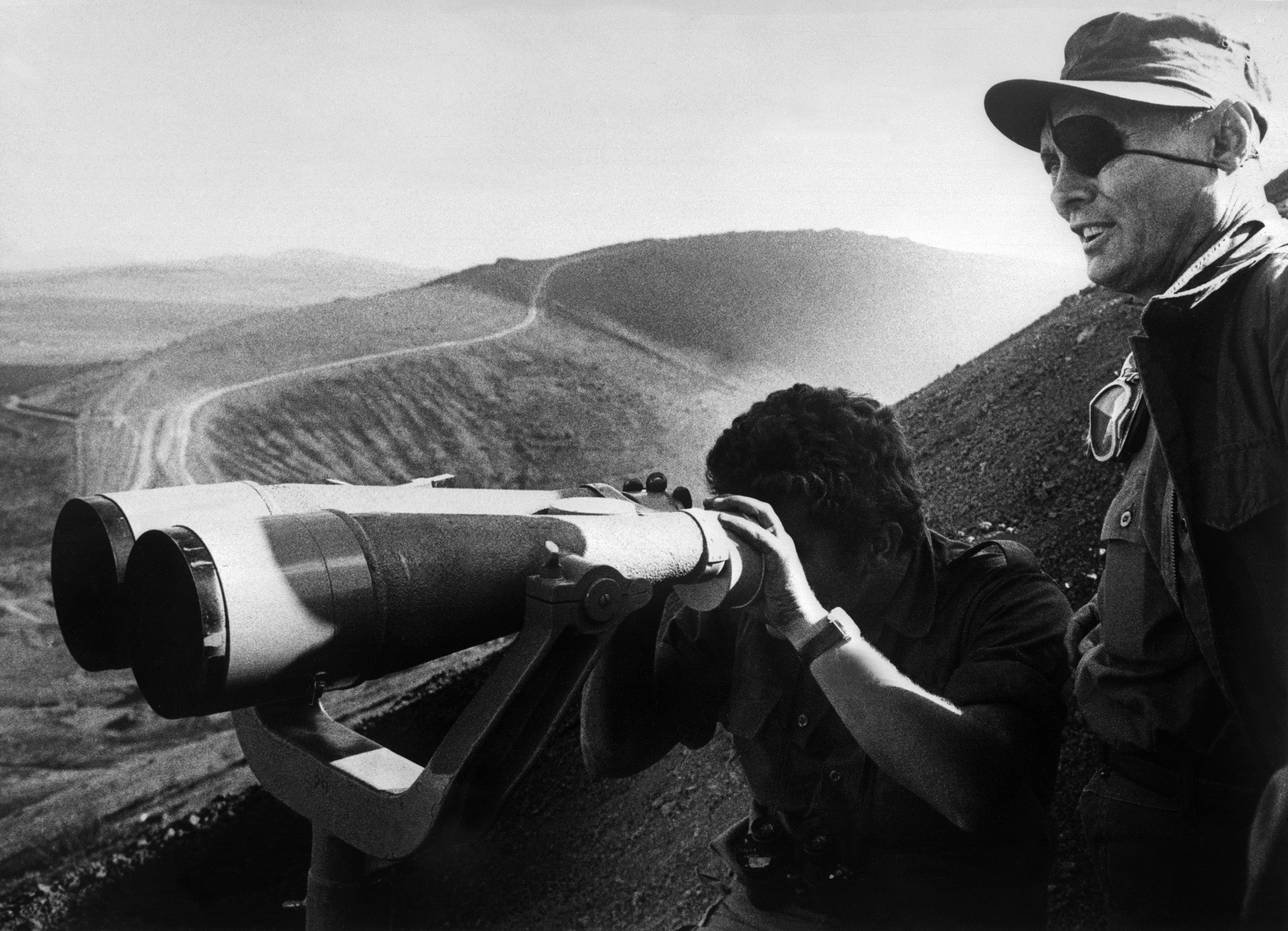Wounded Netanyahu will survive the war he didn’t see coming, but the peace may kill him off
Despite his disastrous failure to prevent this week’s appalling attacks by Hamas, the majority of the Israeli public (as well as the US President) continue to back the prime minister to lead them into war, writes Donald Macintyre. But he could well face a brutal reckoning once this terrible conflict recedes


The first sentence of the editorial in Haaretz, the liberal newspaper whose English edition is sold in Israel inside The New York Times, could hardly have been more stark: “The disaster that befell Israel on the holiday of Simchat Torah is the clear responsibility of one person: Benjamin Netanyahu.”
Haaretz was talking not only of the colossal intelligence failures before Hamas’s murderous breakout from Gaza on the religious holiday that marks the end of Sukkot. It also cited the formation and the policies towards the Palestinians of his coalition government, Israel’s most right-wing ever.
But it was not alone in generally levelling blame at what former prime minister Ehud Olmert this week called the “arrogance” of Netanyahu. Even the right-wing, historically pro-Netanyahu Israel Hayom published an op-ed on Monday by veteran defence analyst Yoav Limor which it headlined “A failure of unimaginable proportions made worse by a leadership vacuum”.
Maybe a report that Netanyahu ignored a warning 10 days earlier from Egypt that something “unusual” and “terrible” was being planned in Gaza – which Netanyahu flatly denies – will turn out to be untrue. But the question still arises of whether he will survive not so much the current war but what will surely be the subsequent inquiry into the circumstances which led to an Israeli death toll now estimated at more than 1,000 as well as so far incalculable Palestinian casualties in Gaza.
Many, especially, but not only, loyalists in his Likud party believe that he will. It is not only that Netanyahu, by some way Israel’s longest-serving Prime Minister, is a world-class political survivor. It’s not just his Machiavellian skills, which no doubt will be deployed, at least post-war, in the search for scapegoats at the head of the intelligence services or the army. It’s also a matter of will. Golda Meir was gone within a year of the 1973 Yom Kippur war which, like the very different Hamas-Islamic Jihad massacre on Saturday, her government had failed to anticipate – and even though the Agranat commission of inquiry had cleared her of “direct responsibility”. Menachem Begin, deeply depressed after a 1982 Lebanon war over which he lost full control, also resigned a year later.

But Netanyahu’s wider political stance also can’t be ignored. The man who 10 years ago (admittedly, grudgingly – and largely to placate Barack Obama) paid lip service to the idea of a Palestinian state side by side with Israel, has thrown in his lot with extreme anti-Arab ultranationalists utterly opposed to a two-state solution. They are determined, while tightening the siege on Gaza, to double to a million the number of Israelis in West Bank settlements (illegal in international law) and entrench an occupation that has oppressed, corralled and dispossessed Palestinians for 56 years.
On the putative tripartite agreement now being negotiated with the US and Saudi Arabia – which once said it would only recognise Israel if there was a two-state solution –he has publicly boasted of ending the Palestinians’ “veto” on such a deal. It is not remotely to forgive, let alone condone, Hamas’s appalling war crimes, to say that Netanyahu has helped to bring Israeli-Palestinian relations to their worst pitch since the second intifada ended in 2004-5. But Palestinians are way more desperate than they were then.
And he has some advantages. However temporarily, the chasm within Israeli society caused by the Supreme Court overhaul has been bridged. Reservists who refused to perform their regular service because of the overhaul, have reported for duty in the face of Saturday’s massacre. The main opposition parties have opened negotiations on joining a unity war cabinet, as Netanyahu the war leader does his best to restore his badly dented image as Israel’s “Mr Security”.
Then there is the state of American politics, which also plays well for the prime minister. After the appalling atrocities, the immediate bipartisan expressions of support for Israel, not only by President Joe Biden but across Congress, were no doubt profoundly heartfelt. But with a US election little more than a year away, the president’s room for manoeuvre in pressing for Israel to show any restraint in its massive onslaught on Gaza – “only the beginning”, as Netanyahu has said – is severely limited.
Donald Trump’s attempt this week to blame Biden for the Hamas attack and to claim that if he had been president it wouldn’t have happened, is of course as outrageous as it is baseless. But it shows he is promoting Israel as an election issue. Even before Trump’s outbursts, the State Department’s Palestinian Affairs Office felt obliged to delete a tweet urging “all sides to refrain from violence and retaliatory attacks”. The secretary of state Anthony Blinken also deleted a subsequent post backing Turkey’s advocacy of a ceasefire. Biden was slow to call a halt to bombardment of Gaza in 2021; this time he may be even slower.
Trump again this week presented himself as Israel’s greatest friend. He isn’t – indeed his decision to move the US embassy from Tel Aviv to Jerusalem in 2018 was part of the slow build-up to the present crisis. But he probably is Netanyahu’s best friend right now.
It would therefore be foolish to write Netanyahu off. Nevertheless, his position is perilous and not only because of the signal failures by intelligence on his watch, and perhaps directly by him as the head of the government, to anticipate Saturday’s massacre – and of the military to protect Israeli citizens more quickly once it was happening.
It’s all very well for [Israel’s finance minister] Bezalel Smotrich to tell the cabinet, as he was reported to have done, that the retaliatory onslaught on Gaza need “not take the matter of the [Israeli] captives into significant consideration”. But Israeli hostages held in Gaza (around 130 according to some armed faction claims) are a serious problem absent from previous wars against Hamas. Even if they survive the current onslaught, and it’s a big if, the clamour from their desperate families for them to be freed – perhaps at the price of releasing large numbers of militants held in Israeli jails – may prove hard to resist.

Moreover the charge sheet against Netanyahu could prove formidable. Even if he was not warned specifically of a threat from Gaza, it was repeatedly made clear to him since the early Spring by past (and by all accounts present) military and intelligence top brass that his unprecedentedly provocative fixation with “reforming” the Supreme Court was dividing and therefore weakening the army, an integral part of Israeli society. Indeed, when defence minister Yoav Gallant told him back in March that the judicial overhaul was “endangering the state” Netanyahu’s response was to fire him (only to reinstate him two weeks later because the street protests were reaching a peak).
The irony of all this is that the events from this weekend have demonstrated if nothing else that what that Haaretz editorial described as a “foreign policy that openly ignored the existence and rights of Palestinians” has failed even to bring the security to Israeli citizens that an attempt much earlier to resolve rather than merely “manage” the conflict might have done. Maybe, though this is very far from bankable, the majority of the Israeli public will now rally behind Netanyahu during and after this terrible war. But even if they do, history is unlikely to be so lenient.
Subscribe to Independent Premium to bookmark this article
Want to bookmark your favourite articles and stories to read or reference later? Start your Independent Premium subscription today.






Join our commenting forum
Join thought-provoking conversations, follow other Independent readers and see their replies
Comments